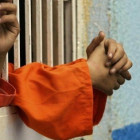
The $1 Million TED Talk
|
Bryan Stevenson didn’t want to go to TED, the genre-defying annual conference full of big thinkers and big ideas. He brushed it off, claimed he was too busy and, besides, he didn’t know anything about it. He was preparing for a big case that was just days away – one that could result in a total ban on juveniles being sentenced to life without parole. Winning the case is a cornerstone goal of a litigation campaign by Equal Justice Initiative (EJI), the Alabama nonprofit Stevenson founded to fight discrimination and injustice in the legal system. “Well, I have to say I wasn’t really interested in going,” Stevenson said in a recent interview.







